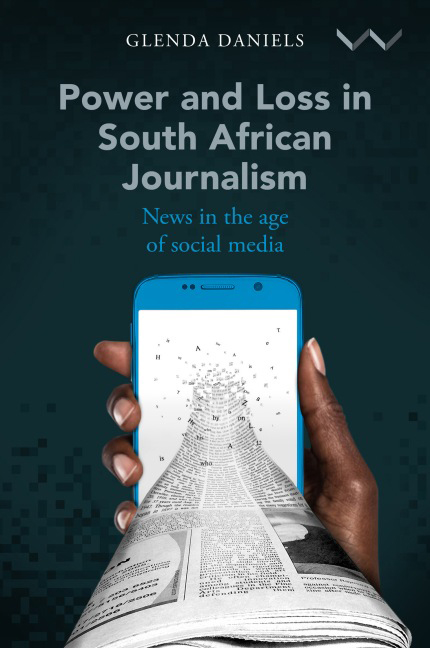Book contents
- Frontmatter
- Dedication
- Contents
- Tables and Figures
- Preface
- Acknowledgements
- Acronyms and Abbreviations
- 1 Power and Subjection in the Media Landscape
- 2 The Media, the State and Zuma’s ANC
- 3 ‘Zupta’: Power and Loss in Investigative Journalism
- 4 The Job Loss Tsunami
- 5 Going Online When You’re Offline: The Case of Community Media
- 6 The Anti-Feminist Backlash, the Glass Ceiling and Online Trolls
- 7 Decolonial ‘Green Shoots’
- 8 Power, Loss and Reimagining Journalism
- Epilogue
- Appendices
- Appendix A Press Code of Ethics and Conduct for South African Print and Online Media (effective from 1 January 2016)
- Appendix B amaBhungane Stories in the Past Two or Three Years
- Notes
- Glossary
- Bibliography
- Index
1 - Power and Subjection in the Media Landscape
Published online by Cambridge University Press: 10 September 2020
- Frontmatter
- Dedication
- Contents
- Tables and Figures
- Preface
- Acknowledgements
- Acronyms and Abbreviations
- 1 Power and Subjection in the Media Landscape
- 2 The Media, the State and Zuma’s ANC
- 3 ‘Zupta’: Power and Loss in Investigative Journalism
- 4 The Job Loss Tsunami
- 5 Going Online When You’re Offline: The Case of Community Media
- 6 The Anti-Feminist Backlash, the Glass Ceiling and Online Trolls
- 7 Decolonial ‘Green Shoots’
- 8 Power, Loss and Reimagining Journalism
- Epilogue
- Appendices
- Appendix A Press Code of Ethics and Conduct for South African Print and Online Media (effective from 1 January 2016)
- Appendix B amaBhungane Stories in the Past Two or Three Years
- Notes
- Glossary
- Bibliography
- Index
Summary
Wherever there is power, there is resistance and yet, or rather consequently, this resistance is never in a position of exteriority in relation to power.
Michel Foucault, The History of SexualityPower is quirky, slippery and paradoxical. It shifts and slides, depending on where you are standing, your position and your gaze. It can press upon you from the outside, from above. It can be horizontal among equals, and it can be internal, as when we subject ourselves to compliance. It can enable insecurities, trauma and passionate attachments.
Corruption in South Africa meant that the poor lost power. Then the power of investigative media kicked in, not overnight but over ten years of true stories, of exposés which helped bring about the fall of a president in January 2018 while his corrupt business cronies fled the country.
But it has not all been power to journalism. ‘Traditional’ journalism, print and broadcast, has lost power through thousands of job losses in the industry. Women have lost voice through a backlash against feminism. Community media has become even more financially unsustainable, and has lost power.
In South Africa, the state has power, the ruling (ANC) has power, the judiciary has power, the Constitution has power, ‘the people’ have power, the corrupt have power.
The media have power, but it can be lost when jobs are lost in newsrooms, when credibility is lost, women's voices are lost, local voice is lost, diversity is lost. The internet and social media have power, generating ‘fake news’ – which then gains power too. It is against this matrix of power tangents that public interest journalism contributes to a deeper democracy.
The years 2017–2019 were spectacular for investigative journalism in South Africa, particularly in relation to the #GuptaLeaks, which reverberated in myriad ways, although the first really big break had come ten years earlier in 2009, by the investigative journalist Mandy Rossouw, with the exposure in the Mail & Guardian of the cost and the funding of work at the president's homestead in Nkandla. Taxpayers’ money had been used for the personal gain of the president.
- Type
- Chapter
- Information
- Power and Loss in South African JournalismNews in the Age of Social Media, pp. 1 - 20Publisher: Wits University PressPrint publication year: 2020



